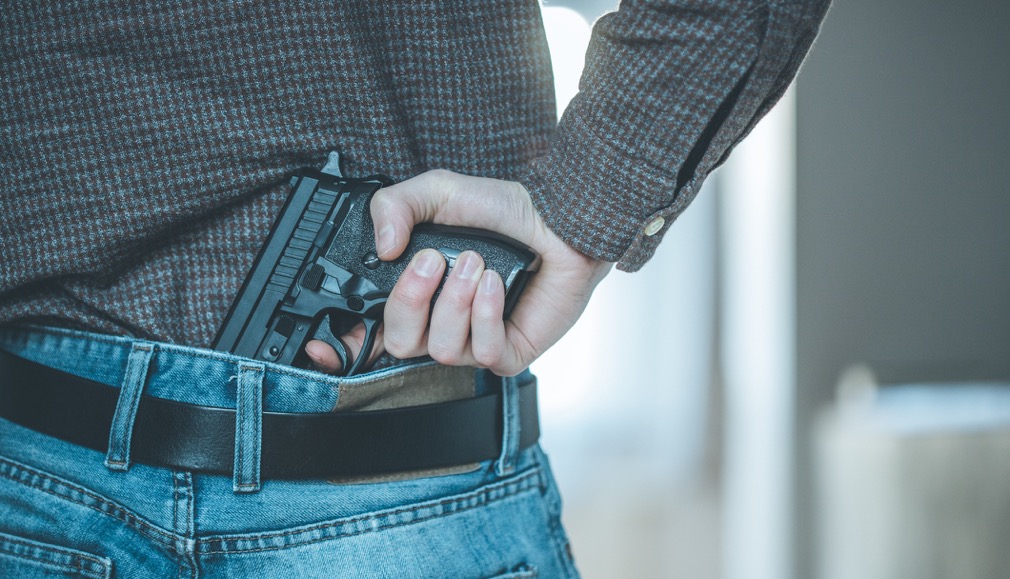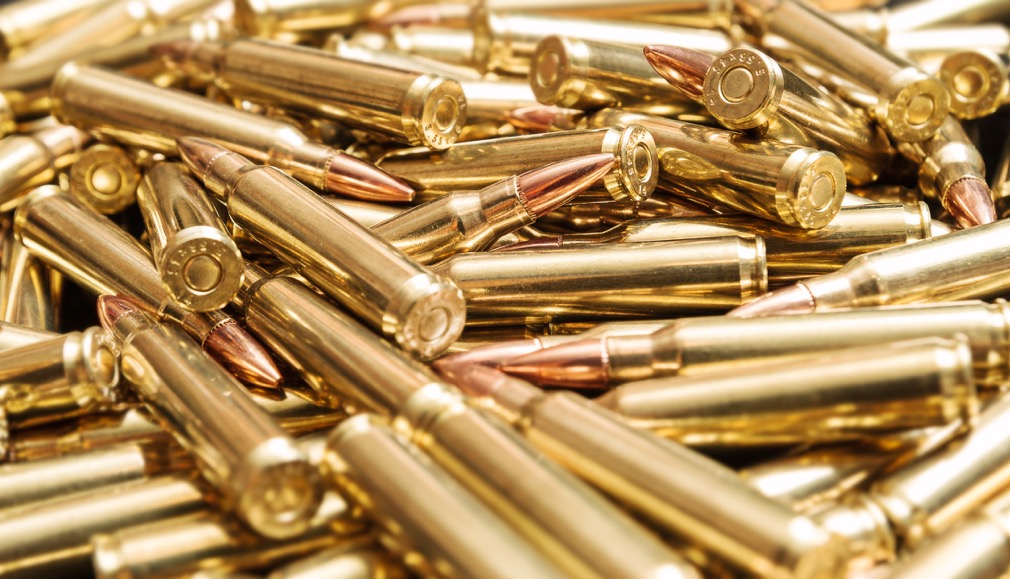Michigan has two laws that are sometimes confused with one another: Felon in Possession of a Firearm (FIP) and Felony Firearm (FF). The first can be charged any time a person had a firearm on them at the time they committed a felony or attempted to commit a felony. The second pertains only to those who have previously been convicted of a felony. These two laws carry very different penalties.

Felony Firearm
The more well-known of the two crimes is Carrying or Possessing a Firearm During the Commission of a Crime or Attempt to Commit a Felony. The charge is usually referred to as Felony Firearm (FF). You can read the Michigan law here.
Essentially, if you carry or possess a firearm while committing a felony in Michigan, you can be charged with Felony Firearm as well as the other felony. Although felony firearm laws were passed to discourage people from possessing guns while committing other felonies, you can be charged with FF even if the gun you had did not discharge.
However, you cannot be charged with FF if you only used something to make the victim believe it was a firearm; ex. your finger, a stick, or even a toy gun.
Felon’s Gun Ownership Restrictions
The Michigan Penal Code section 750.224(f) explains the different restrictions gun owners face if they are convicted of a felony firearms charge. In the state of Michigan if you were convicted of a felony on any of the following:
- The use, or attempted use, or threatened physical force against another person or property
- Unlawful manufacture, possession, or distribution of a controlled substance
- Unlawful possession or distribution of a firearm
- Unlawful use of an explosive
- Arson, burglary, or breaking and entering
Restoration of Firearm Rights in Michigan
You are unable to own, use, transport, sell, or purchase a firearm or ammunition within the state of Michigan for five years after completing the following steps:
- Paid all fines
- Served your imprisonment terms
- Completed parole or probation
- A Michigan court has reinstated your Second Amendment rights under section 4 of 1927 PA 372, MCL 28.424
However, if you were convicted of any other type of felony or crime in which you were sentenced to four years or more in prison, you can’t own, use, transport, sell, or purchase a firearm or ammunition within the state of Michigan for three years after completing the following criteria:
- Paid all fines
- Served prison sentence
- Completed all parole and/or probation requirements
If you violate these restrictions and regulations, you may be facing another felony charge punishable by up to five years in prison with fines up to $5,00. Each violation of Michigan law is punishable as a separate offense. For example, if you participate in firearm deer season twice within your sentence, you could be punished with up to ten years in jail and $10,000 in fines.
How to Get Gun Rights Back After a Felony Charge in Michigan
When seeking the reinstatement of your firearm rights after a felony firearm conviction in Michigan, an application to the superior court is required to present your evidence of the following:
- It has been five years since completing all requirements of your sentence.
- You are not a danger to the public if you regain your firearm rights
- The application was properly filled out in its entirety.
If a Michigan judge rejects your application, you must wait a full year before submitting a new application. At The Law Offices of Barton Morris, we have 20 years of experience in helping individuals, just like you, with their felony firearm defense and necessary applications to regain their Second Amendment rights. Contact us today to begin your defense or application.
Felon in Possession of a Firearm or Ammunition
Although anybody who carries or possesses a firearm while committing another felony can be charged with Felony Firearm, the crime of Felon in Possession of a Firearm (FIP) can only be committed by someone who has previously been convicted of one or more felonies.
The Michigan statute that prohibits a felon from possessing a firearm or ammunition has a number of different provisions. The provision that is most frequently used bans a person who was previously convicted of a felony from doing a laundry list of actions with a firearm until a specific time has passed.
Specifically, if you have previously been convicted of a felony, you cannot possess, use, transport, sell, purchase, carry, ship, receive, or distribute a firearm in Michigan until at least three (3) years after all of the following things have happened:
- The previously-convicted person has paid all fines that were part of the prior sentence.
- The previously-convicted person has completed all terms of imprisonment that were part of the prior sentence.
- The previously-convicted person has completed all probation or parole conditions of the sentence in the prior sentence.
The same Michigan law also prohibits a person convicted of a felony from possessing, using, transporting, selling, carrying, shipping, or distributing ammunition in Michigan until at least three (3) years have passed.
Carrying a Concealed Firearm as a Felon
The prosecutor can charge you with FF if you carried or possessed a firearm while committing (or attempting to commit) almost any other felony, but there are a few exceptions. Perhaps the most surprising exception to the FF law is if you are charged with Unlawfully Carrying a Concealed Weapon (CCW, Pistol), or with Carrying a Pistol in a Motor Vehicle, whether the pistol is concealed or not.
The Carrying a Concealed Weapon statute includes both of those fact patterns and can be found here.
Therefore, if you are carrying a firearm but it is concealed, you can only be charged with Unlawfully Carrying a Concealed Weapon (Pistol), not Unlawfully Carrying a Concealed Weapon and Felony Firearm. Similarly, if you are pulled over and police discover a firearm in the passenger compartment of your vehicle, you can be charged with Carrying a Pistol in a Motor Vehicle, but not with Carrying a Pistol in a Motor Vehicle and Felony Firearm.
You can find a more detailed description of the Carrying a Concealed Weapon law here.
Felony Firearm is one of a handful of crimes that gives the judge in your case no discretion in sentencing you. While most crimes have a sentencing range the judge can adhere to (sentencing you anywhere from a term of probation up to five [5] years), a FF conviction has a mandatory prison sentence depending on the offense below:
- A first conviction for FF carries a mandatory two years in prison.
- A second conviction carries a mandatory five years.
- A third or subsequent FF conviction carries a mandatory 10 years.
Sentencing For Possession of a Firearm by a Convicted Felon
Felony Firearm is also different from most crimes because of the way your sentence(s) and the other felony (or felonies) must be served. In most cases, sentences are served at the same time, or concurrently.
For example, if you were convicted of stealing a car, breaking into a house, and assaulting someone, all three sentences would start on your first day in prison and the date you would be eligible for parole is based on the longest sentence you received.
However, if you are convicted of first offense Felony Firearm and another felony, the prison time for the other felony will not start until the two (2) years for the FF has been served. This is called consecutive sentencing.
Furthermore, a sentence for a FF conviction cannot be suspended or reduced by good conduct time or other prison credits. Since a FF conviction requires a two-year, five-year or ten-year sentence, all of which cannot be suspended and is not affected by prison credits; it is often called “flat time.”
*While we are now taking in-person consultations according to our COVID-19 policy, we will still conduct Skype, Zoom or phone consultations if that is what the client prefers.
*IMPORTANT:
As the federal law currently stands, if you have ever been convicted of a felony you will never be legally able to carry or possess a gun. The federal ban against carrying or possessing a firearm applies to every person convicted of a felony in every person in every state, not just Michigan. The Michigan Felon in Possession of a Firearm law simply allows the prosecutor to charge a state law violation for carrying, possessing, etc. a firearm or ammunition if they have a prior felony. The federal ban on carrying or possessing a gun by those previously convicted of a felony is set forth separately and in greater detail here.


